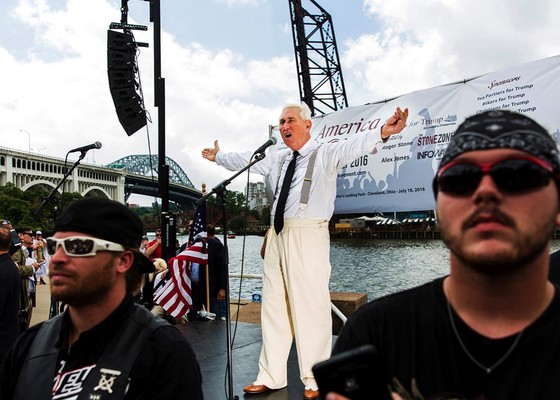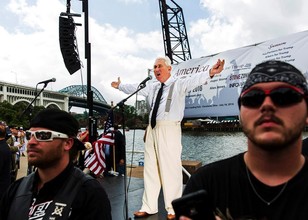By Jacob Weisberg
Slate Magazine
March 15, 2019
I wrote the story about Roger Stone reprinted below in 1985, when I was a college student, taking a year off to work as a reporter-researcher at the New Republic. This was Reagan-era Washington, where the old ideal of public service had given way to the service business of exploiting political connections for profit. What made Stone stand out in that tawdry scene was his utter shamelessness. He bragged about being a 19-year-old bit player in the Watergate scandal and about his friendship with Roy Cohn, Joe McCarthy’s notorious henchman. Along with his partners, among them Trump adviser Paul Manafort, he engaged in campaign tactics no one else would admit to and took lobbying clients no one else would represent, including murderous foreign dictators.
t became clear to me when I was reporting the story that Stone was less power player than con artist. He cultivated a reputation for being a bad boy, playing dirty tricks and crossing ethical lines. In practice, so far as I could tell, he was mostly shaking down his clients, who paid him a lot of money based on the largely false impression that he had real influence. He was a bluffer, implying he advised people he didn’t, and a leaker, ratting out his allies in pursuit of his own agenda.


